Re-pensar la investigación curricular en la condición posthumana: Una postura posthumanista crítica
Resumen
Palabras clave
Texto completo:
PDFReferencias
Aoki, T. 1993. “Legitimating Lived Curriculum: Towards a Curricular Landscape of Multiplicity”. Journal of Curriculum and Supervision 8 (3): 255–68.29-5149
ID. 1999. “Interview: Rethinking Curriculum and Pedagogy”. Kappa Delta Pi Record 35 (4): 180–81. https://doi.org/10.1080/00228958.1999.10518454.
ID. 2004. “Layered Understanding of Orientations in Social Studies Program Evaluation”. In Curriculum in a New Key: The Collected Works of Ted T. Aoki, edited by W. Pinar and R. Irwin, 168–86. Mahwah, NJ: Lawrence Erlbaum. https://doi.org/10.4324/9781410611390.
Barad, K. 2007. Meeting the Universe Halfway: Quantum Physics and the Entanglement of Matter and Meaning. Durham, NC: Duke University Press. https://doi.org/10.2307/j.ctv12101zq.
Barad, K., and G. Daniela. 2021. “Political Desirings: Yearnings for Mattering (,) Differently”. Theory and Event 24 (1): 14–66. https://doi.org/10.1353/tae.2021.0002.
Braidotti, R. 2011. Nomadic Subjects: Embodiment and Sexual Difference in Contemporary Feminist Theory. 2nd ed. New York, NY: Columbia University Press.
ID. 2013. The Posthuman. Malden, MA: Polity Press.
ID. 2018. “Posthuman Critical Theory”. In Posthuman Glossary, edited by R. Braidotti and M.
Hlavajova, 339–42. London: Bloomsbury Academic.
ID. 2019. Posthuman Knowledge. Malden, MA: Polity Press.
ID. 2020. “‘We’ Are in This Together, But We Are Not One and the Same”. Journal of Bioethical
Inquiry 17: 465–69. https://doi.org/10.1007/s11673-020-10017-8.
ID. 2022. Posthuman Feminism. Cambridge: Polity Press.
Braidotti, R., and M. Hlavajova. 2018. Posthuman Glossary. London: Bloomsbury Publishing.
Césaire, A. 1955. Discours sur le colonialism. Paris: Présence Africaine.
Deever, B. 1996. “If Not Now, When? Radical Theory and Systematic Curriculum Reform”.
Journal of Curriculum Studies 28 (2): 171–91. https://doi.org/10.1080/0022027980280204.
Ellsworth, E. 1989. “Why Doesn’t This Feel Empowering? Working through the Repressive Myths of Critical Pedagogy”. Harvard Education Review 59 (3): 297–324. https://doi.org/10.17763/haer.59.3.058342114k266250.
Fanon, F. 1967a. Black Skins, White Masks. New York, NY: Grove Press.
ID. 1967b. Towards the African Revolution. Translated by H. Chevalier. New York, NY: Grove Press.
Freire, P. 1972. Pedagogy of the Oppressed. London: Penguin.
Horkheimer, M. (1937) 1968. Traditionelle und Kritische Theorie: Vier Aufsätze. Frankfurt: Fischer. https://doi.org/10.5840/zfs19376265.
Jahn, B. 2021. “Critical Theory in Crisis? A Reconsideration”. European Journal of International Relations 27 (4): 1274–299. https://doi.org/10.1177/13540661211049491.
Johnson, J., ed. 2013. Introduction to Dark Trajectories: Politics of the Outside, edited by J.
Johnson, 5–11. Hong Kong: [Name] Publications.
Le Grange, L. 2015. “Currere’s Active Force and the Concept of Ubuntu”. Keynote address at the triennial conference of the International Association for the Advancement of Curriculum Studies (IAACS), University of Ottawa, May 26–30.
ID. 2016. “Sustainability Education and (Curriculum) Improvisation”. Southern African
Journal of Environmental Education 32: 26–36. https://www.ajol.info/index.php/sajee/article/
view/152718/142307.
ID. 2017. “Contemporary Curriculum Theories and Their Influence on Teaching and Learning”. In Education Studies for Initial Teacher Development, edited by L. Ramrathan, L. Le Grange
and P. Higgs, 112–24. Cape Town: Juta.
ID. 2018a. “What Is (Post)Qualitative Research?” South African Journal of Higher Education 32 (5): 1–14. http://doi.org/10.20853/32-5-3161.
ID. 2018b. “The Notion of Ubuntu and the (Post)Humanist Condition”. In Indigenous Philosophies of Education around the World, edited by J. Petrovic and R. Mitchell, 40–60. New York, NY: Routledge. https://doi.org/10.4324/9781315173603-3.
ID. 2018c. “Spinoza, Deep Ecology and Education Informed by a (Post)Human Sensibility”. Education Philosophy and Theory 50 (9): 878–87. https://doi.org/10.1080/00131857.2017.1384723.
ID. 2018d. “A (Re)Turn to Realism(s)”. Educational Philosophy and Theory 50 (14): 1594–595. https://doi.org/10.1080/00131857.2018.1461424.
ID. 2019. “Currere’s Active Force and the Concept of Ubuntu”. In Internationalising Curriculum Studies: Histories, Environments and Critiques, edited by C. Hébert, A. Ibrahim, N. Ng-A-Fook and B. Smith, 207–26. New York, NY: Palgrave Macmillan. https://doi.org/10.1007/978-3-030-01352-3_13.
ID. 2022. “Global Citizenship Education and the (Post)Human Condition”. In Comparative Education for Global Citizenship, Peace and Shared Living through Ubuntu, edited by N. Assié-Lumumba, K. Bedi, M. Cross and Y. Ekanayake, 28–41. Leiden: Brill.
Manning, E., and B. Massumi. 2014. Thought in the Act: Passages in the Ecology of Experience. Minneapolis, MN: University of Minnesota Press. https://doi.org/10.5749/minnes ota/9780816679669.001.0001.
Meillassoux, Q. 2008. After Finitude: An Essay on the Necessity of Contingency. Translated by R. Brassier. New York, NY: Continuum. https://doi.org/10.5040/9781350252059.
Mies, M., and V. Shiva. 1993 Ecofeminism. London: Zed Books. https://doi.org/10.5040/9781350219786.
Murris, K., and V. Bozalek. 2022. “Dis/Identification”. In A Glossary for Doing Postqualitative, New Materialist and Critical Posthumanist Research across Disciplines, edited by K. Murris, 58–59. London: Routledge. https://doi.org/10.4324/9781003041153-29.
Parikka, J. 2018. “Antropocene”. In Posthuman Glossary, edited by R. Braidotti and M. Hlavajova, 51–53. London: Bloomsbury Publishing.
Pinar, W. F. 1975. “The Method of Currere”. Paper presented at the annual meeting of the American Educational Research Association, Washington, DC. https://files.eric.ed.gov/fulltext/ED104766.pdf.
ID. 2004. What Is Curriculum Theory? Mahwah, NJ: Lawrence Erlbaum Associates.
ID. 2011 The Character of Curriculum Studies: Bildung, Currere and the Recurring Question of the Subject. New York, NY: Palgrave Macmillan. https://doi.org/10.1057/9781137015839_9.29-5151
ID. 2013. “The Reconceptualization of Curriculum Studies”. In The Curriculum Studies Reader, 4th ed., edited by D. Flinders and S. Thornton, 149–56. New York, NY: Routledge.
Ramose, M. 2009. “Ecology through Ubunto”. In African Ethics: An Anthology of Comparative and Applied Ethics, edited by M. F. Murove, 308–14. Pietermaritzburg: University of KwaZuluNatal Press.
Slattery, P. 2013. Curriculum Development in the Postmodern Era: Teaching and Learning in an Age of Accountability. 3rd ed. New York, NY: Routledge.
Snaza, N., and J. Weaver, eds. 2016. Posthumanism and Educational Research. New York, NY: Routledge.
Tuck, E., and W. K. Yang. 2012. “Decolonization Is Not a Metaphor”. Decolonization, Indigeneity, Education and Society 1 (1): 1–40.
Tyler, R. 1949. Basic Principles of Curriculum and Instruction. Chicago, IL: University of Chicago Press

Este obra está bajo una licencia de Creative Commons Reconocimiento-NoComercial-CompartirIgual 4.0 Internacional.
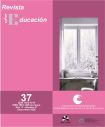 |
ISSN 1853-1318 (impresa) - ISSN 1853-1326 (en línea)
|
| Indizada en: | |
 | CCPP Catálogo Colectivo de Publicaciones Periódicas http://ccpp.caicyt.gov.ar/cgi-bin/koha/opac-detail.pl?biblionumber=149451 |
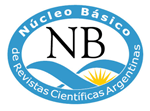 | Núcleo Básico de Revistas Científicas Argentinas, Caicyt http://www.caicyt-conicet.gov.ar/sitio/revista-de-educacion/ |
 | Google académico (en proceso de actualización) |
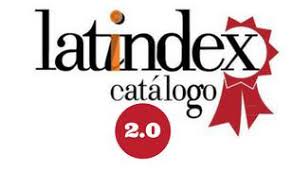 | Latindex https://www.latindex.org/latindex/ficha/14316 |
 | Redib http://redib.org/Record/oai_revista1003-revista-de-educaci%C3%B3n |
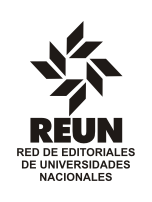 | REUN https://www.reun.com.ar/ |
 | DOAJ Link/ |
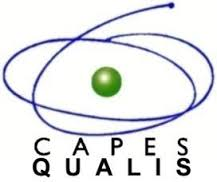 | Capes Qualis Link/ |
 | Journals for Free Link/ |
 | Latinoamericana (Asociación de Revistas Académicas de Humanidades y Ciencias Sociales) Link/ |
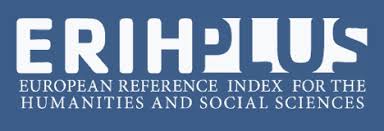 | ERIH PLUS (European Reference Index for the Humanities and Social Sciences) Link/ |
 | ROAD (Directory of Open Acces Scholarly Resources) Link/ |
 | Directory of Research Journals Indexing (DRJI) Link/ |
 | LatinRev Link/ |
| Esta revista utiliza el Identificador Persistente | |
.png) |

